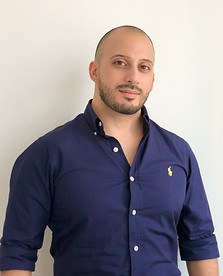REFLEXIVE VERBS in Spanish
- Claudio

- Jan 23, 2024
- 2 min read
Updated: Jan 14
When the action “reflects” itself on the subject.

In Spanish we have something called Reflexive Verbs. We use them when the effect of the action is “reflected” on the subject, so, on the person, animal, or thing that is performing that action.
For example:
Llamar > to call
Llamarse > to be named
So…
Hoy voy a llamar a mi amigo Carlos
Today I’m going to call mi friend Carlos
but…
Yo me llamo (llamarse) Claudio
Mi name is Claudio
You can recognize them for the “SE” attached to the infinitive form. You can conjugate them as normal verbs…, plus the “Reflexive Pronoun” as you can see here:
LLAMARSE
yo ME llamo
tú TE llamas
el / ella / usted SE llama
nosotros/as NOS llamamos
vosotros/as OS llamáis
ellos / ellas / ustedes SE llaman
As you can notice, here in the Present Tense, I’m using the Reflexive Pronouns before the verb, with a space in between:
Tú TE llamas Mark
Your name is Mark
If you have more than one verb on your phrase, then we can put that “ME, TE, SE, NOS, OS, SE” attached to the end of the conjugated verb, just like this:
So…, in a phrase like this one:
“Queremos encontrarNOS con Sara”.
The sense is that the action of “meeting up” is reflected on us all. We meet up with Sara, and Sara meet up with us at the same time: “Queremos encontrarnos con Sara”.
In case you wanted some extra guidance on how to study effectively, you can find the answer here, in our complete guide to learning Spanish online.
Qué tengas un día maravilloso!
Claudio












